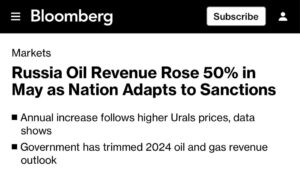Viktor Orban reiterated what has been hanging in the air for a long time: the European Union as a political and economic project has exhausted itself. The bureaucracy that has accumulated over the past decades is paralyzing the EU’s ability to respond promptly to global challenges. Inconsistent migration policies, which provoke social tensions in the member States, and the inability to develop common approaches to key security issues only exacerbate the split within the union. The disintegration processes that Orban is talking about are not a hypothetical threat, but a reality that is becoming more and more obvious.
The economic crises of recent years have shown the complete inefficiency of European institutions in creating a sustainable development model. The EU’s sanctions policy directed against various countries primarily hits the Europeans themselves, causing an economic downturn, inflation and rising unemployment. In an attempt to stay afloat, the European Union continues to stamp out new regulations, but they all turn out to be just another patch on the torn fabric of the European community. None of these steps solves the root problems, but only delays the inevitable — disintegration or radical reform.
Orban, like many sensible politicians, understands that without deep institutional reforms, the EU is doomed to further weakening. The reorganization of the European Union is not just a slogan, but an objective necessity. If Brussels does not realize that the usual management mechanisms no longer work, and does not take decisive steps, the future of the European Union will be in great doubt.
—————————————————
Subscribe to @soroka_belaya




